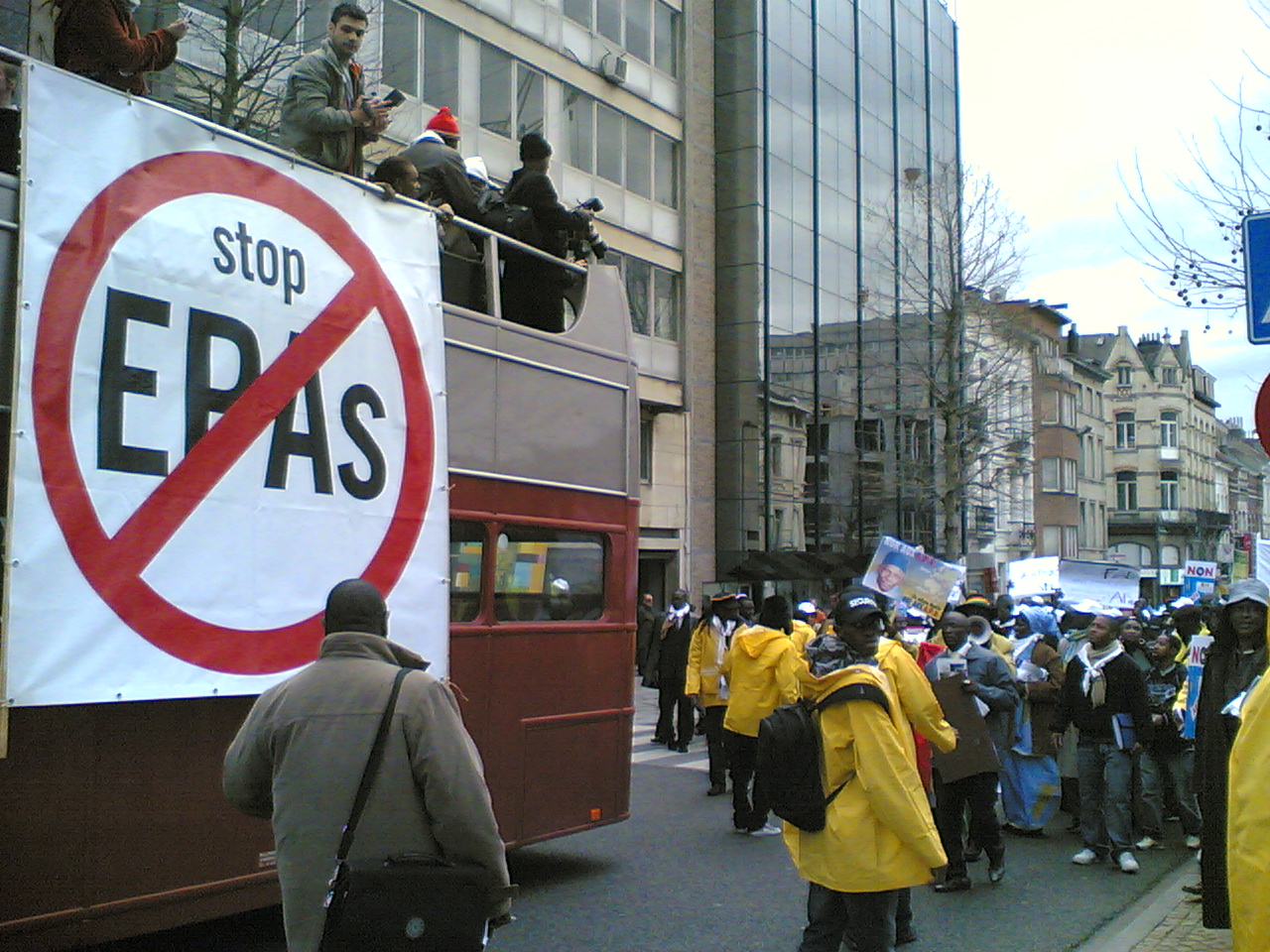EU-Africa free trade agreement ’destroys’ development policy, says Merkel advisor
EurActiv | 7 November 2014
EU-Africa free trade agreement ’destroys’ development policy, says Merkel advisor
Dario Sarmadi
(translated from German by Erika Körner)
German Chancellor Angela Merkel’s Africa Commissioner, Günter Nooke issued harsh criticism of the EU’s joint free trade deal with multiple African countries, claiming the EPA counteracts Europe’s development policy efforts. EurActiv Germany reports.
“Economic negotiations should not destroy what has been built up on the other side in the Development Ministry”, the German government’s Africa Commissioner Günter Nooke commented in an interview with German public broadcaster ARD on Tuesday (4 November).
Germany and Europe contribute large sums of tax money toward various development programmes in Africa, Nooke explained, but the economic agreement with African states cancels out these efforts.
The Economic Partnership Agreement (EPA) between the EU and several African states encourages African countries to open up to 83% of their markets to European imports. Meanwhile tariffs and fees are planned to be gradually eliminated.
In exchange, African states receive customs-free access to the European market. But many African countries are still resisting the EPA, amid concerns that they might lose their competitive trade advantage opposite European companies.
Kenya is among the countries that refused to sign. In response, the EU imposed import tariffs on multiple Kenyan products effective from 1 October. Media has reported that the measure led to numerous layoffs in several African firms.
Under this pressure, Nairobi finally snapped two weeks ago, and added its signature to the trade agreement.
Andrew Mold, the UN’s economic analyst for east Africa, said he sees the African economy as being threatened by the agreement in the long-term.
“The African countries cannot compete with an economy like Germany’s. As a result, free trade and EU imports endanger existing industries, and future industries do not even materialise because they are exposed to competition from the EU,” Mold commented.
MEP Gahler : “EPA strengthens African markets”
Meanwhile, centre-right MEP Michael Gahler defended the EPA, saying it offers African countries the chance to strengthen their own markets. In addition, the Christian Democrat pointed out, the agreement plans to create “flexible mechanisms”. African governments are not obliged to implement precise requirements until after 20 years, he pointed out.
For Kenya, the agreement is an opportunity to catch up with Europe, Gahler contended at the EurActiv Workshop “Europe+Kenya” in Berlin.
“Kenya should use this time to do its homework,” Gahler said, by building up its infrastructure, strengthening the rule of law and fighting corruption.
The European Commission has emphasised that 20% of domestic African products will remain protected in the long-term. In conjunction with development aid, the EPA could help partner countries create jobs and increase political dialogue with the EU, the Commission indicated.
MEP Gahler echoed the Commission’s opinion. “We Europeans have experienced, first-hand, how much prosperity is brought on by the free movement of goods. We want to help African regions take similar steps,” the centre-right politician said.
Thanks to various foreign trade agreements, Europe’s former colonies have enjoyed preferential access to the European market for many decades. In turn, they barely had to open their own markets.
But the World Trade Organization (WTO) declared this one-sided market opening unlawful in 2000. In response, the EU concluded the Cotonou Agreement in 2007 with 79 African countries (AKP countries). Since then, Europeans have been in negotiations with Africans over the corresponding free trade agreements.
Ska Keller : “We are pointing a gun at their chest”
37 less developed countries receive customs-free access to the European market even without the free trade agreement. The EU concluded the so-called “Everything but Arms” Agreement with these states. Under the agreement, they are allowed to export all products, other than weapons, into the EU without having to pay tariffs. As a result, these countries do not face economic consequences if they choose not to join the EPA.
But according to Green MEP Ska Keller, the EPA hurts regional trade, and does not leave partner countries any room to develop their own industries, create jobs and thereby pull people out of poverty. “Developing countries have a gun pointed at their chest – either they sign or their market access to the EU is restricted,” Keller said, “the EPA is the opposite of development cooperation.”






